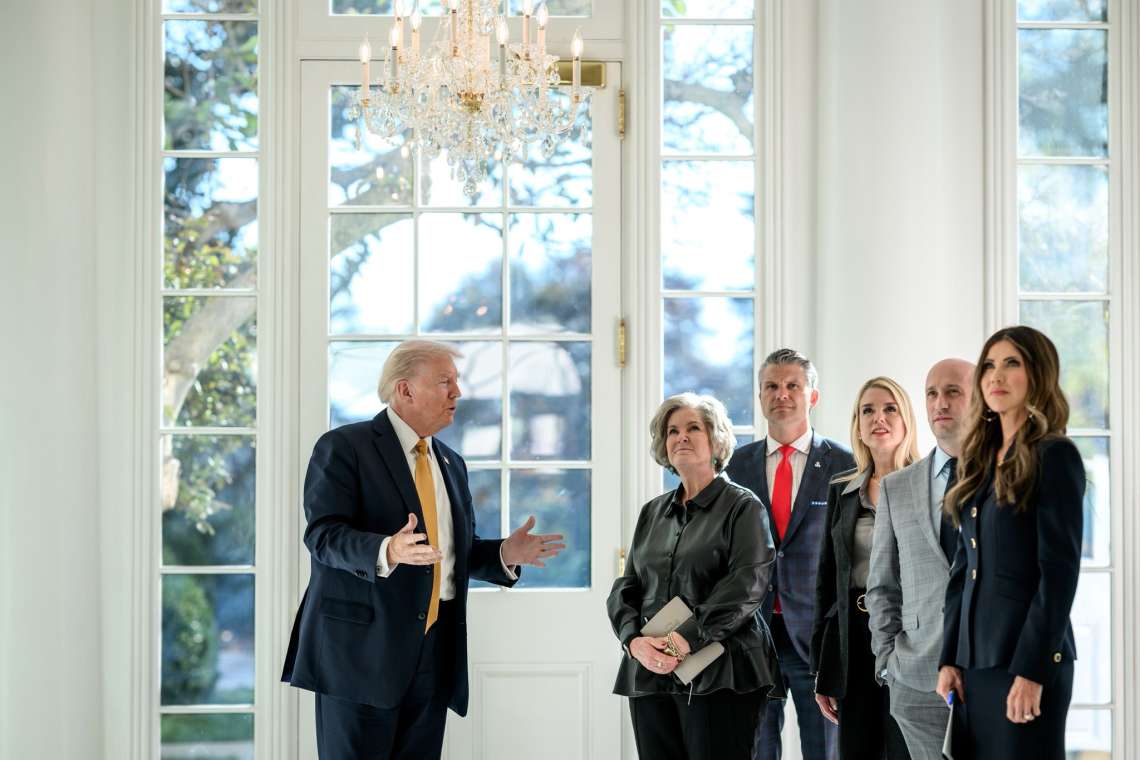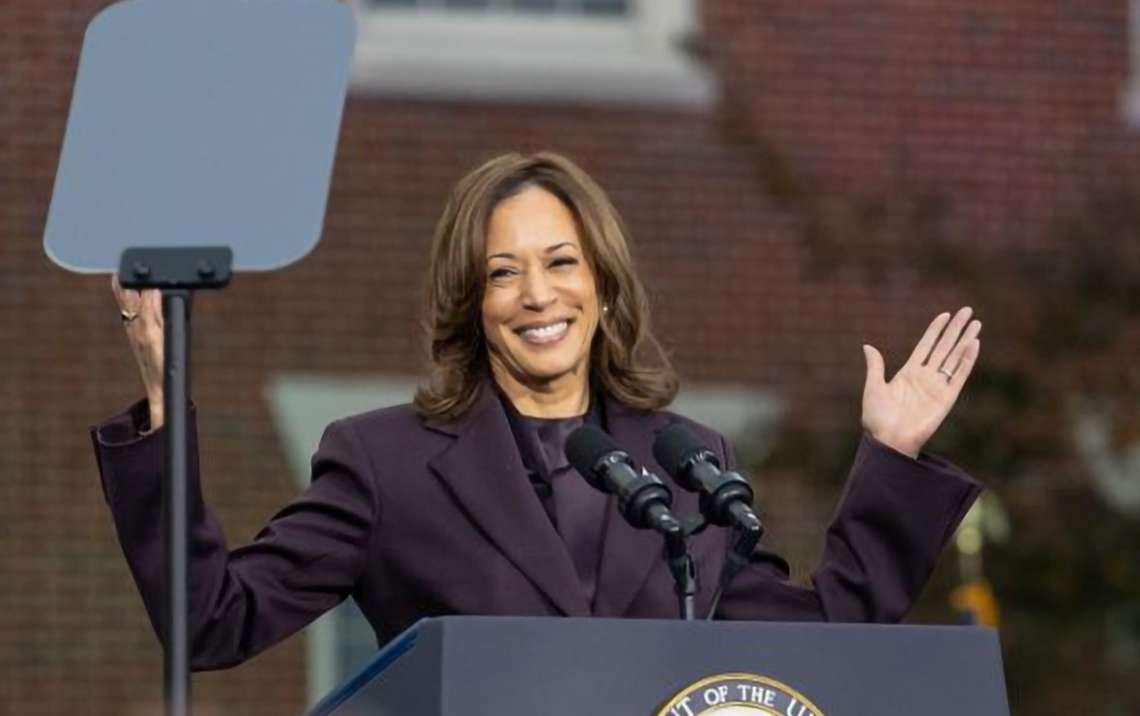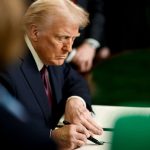The threat came a day after Trump said he was placing Nigeria on the list of “countries of particular concern” for allegedly failing to address religiously motivated violence
US President Donald Trump has warned that he has instructed the Pentagon to prepare for potential military action in Nigeria, escalating his accusations that the West African nation is failing to curb what he describes as the persecution of Christians. In a series of social media posts on Saturday, Trump claimed he would “immediately stop all aid and assistance to Nigeria” and said he was directing the “Department of War” to draft plans for a possible US intervention.
“If the Nigerian Government continues to allow the killing of Christians, the USA will immediately stop all aid and assistance to Nigeria, and may very well go into that now disgraced country, ‘guns-a-blazing,’ to completely wipe out the Islamic Terrorists who are committing these horrible atrocities,” Trump wrote. “I am hereby instructing our Department of War to prepare for possible action. If we attack, it will be fast, vicious, and sweet, just like the terrorist thugs attack our CHERISHED Christians!”
The threat came a day after Trump said he was placing Nigeria on the list of “countries of particular concern” for allegedly failing to address religiously motivated violence. It marks a significant escalation in rhetoric towards Africa’s most populous nation and a key strategic partner of the United States.
Nigeria’s President Bola Ahmed Tinubu swiftly rejected Trump’s allegations, saying they did not reflect the reality of religious life in the country. In a statement on Saturday, Tinubu said, “Religious freedom and tolerance have been a core tenet of our collective identity and shall always remain so. Nigeria opposes religious persecution and does not encourage it. Nigeria is a country with constitutional guarantees to protect citizens of all faiths.”
Trump’s remarks follow recent political pressure from Republicans in Washington. Last month, US Senator Ted Cruz called on Congress to designate Nigeria as a violator of religious freedom, citing claims of “Christian mass murder.” On Friday, Trump said, “Christianity is facing an existential threat in Nigeria” and blamed “radical Islamists” for what he called “mass slaughter.”
Nigeria, with a population of around 220 million people, is almost evenly divided between Christians and Muslims. It has long grappled with multiple security crises, including attacks by Boko Haram and splinter groups affiliated with Islamic State in the north-east, as well as armed banditry, farmer-herder clashes over land and water, communal violence, secessionist movements and ethnic tensions.
While some violence has targeted Christian communities, analysts and human rights groups say the majority of victims of extremist attacks are Muslims in the predominantly Muslim northern regions. Boko Haram, which seeks to impose its extreme interpretation of Islamic law, has also attacked Muslims it considers insufficiently devout.
The complexity of Nigeria’s security challenges means motivations behind attacks often vary. Some incidents are religiously motivated, while others stem from competition for scarce resources, long-standing ethnic grievances or local political disputes. The government has consistently argued that to frame the violence as a religious war oversimplifies a multifaceted crisis.
Kimiebi Ebienfa, spokesperson for Nigeria’s Ministry of Foreign Affairs, reiterated Abuja’s commitment to protect citizens of all faiths. “The Federal Government of Nigeria will continue to defend all citizens, irrespective of race, creed, or religion,” Ebienfa said on Saturday. “Like America, Nigeria has no option but to celebrate the diversity that is our greatest strength.”
Trump’s comments risk inflaming tensions between Washington and Abuja. Nigeria was first placed on the US list of countries of particular concern in 2020 for what the State Department described as “systematic violations of religious freedom.” That designation did not focus solely on attacks against Christians. It was removed in 2023, a move widely seen as an attempt to stabilise relations ahead of a visit by then–Secretary of State Antony Blinken.
Trump’s latest remarks mark a return to a more confrontational stance. His suggestion of potential military intervention and an immediate cessation of aid represents one of the most forceful statements from a US president towards Nigeria in recent years.
The United States provides Nigeria with military training, humanitarian assistance, health funding and support for counter-terrorism operations. Any suspension of aid could impact joint efforts to combat extremist groups in the Lake Chad Basin and undermine health programmes tackling diseases such as malaria, HIV and polio.
Nigerian officials have so far avoided direct confrontation with Washington, instead emphasising the country’s constitutional protections for freedom of worship and its history of religious coexistence. However, Trump’s words have sparked strong reactions across Nigeria’s political, religious and social spheres, with concerns that such statements could deepen divisions and embolden extremist rhetoric.
As of Saturday night, there was no official response from the Pentagon to Trump’s claim that he had instructed it to prepare plans for military action. The White House did not release further details on whether formal orders had been issued or whether any diplomatic discussions were underway.
Trump’s intervention places fresh scrutiny on Nigeria’s handling of insecurity and religious tensions, while raising questions about the future of US-Nigeria relations during a period of global geopolitical realignment.













